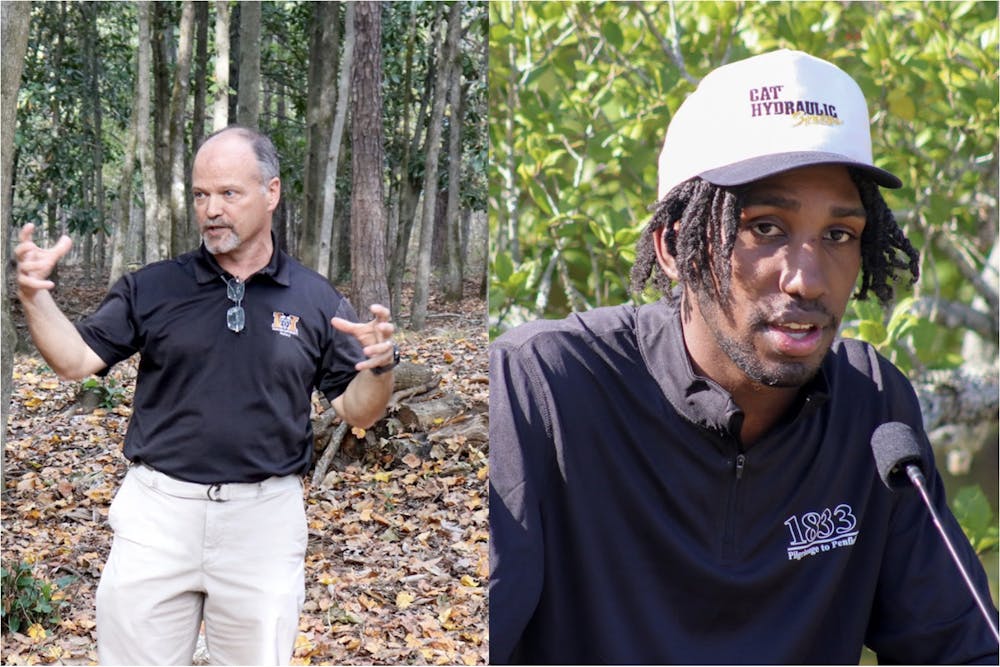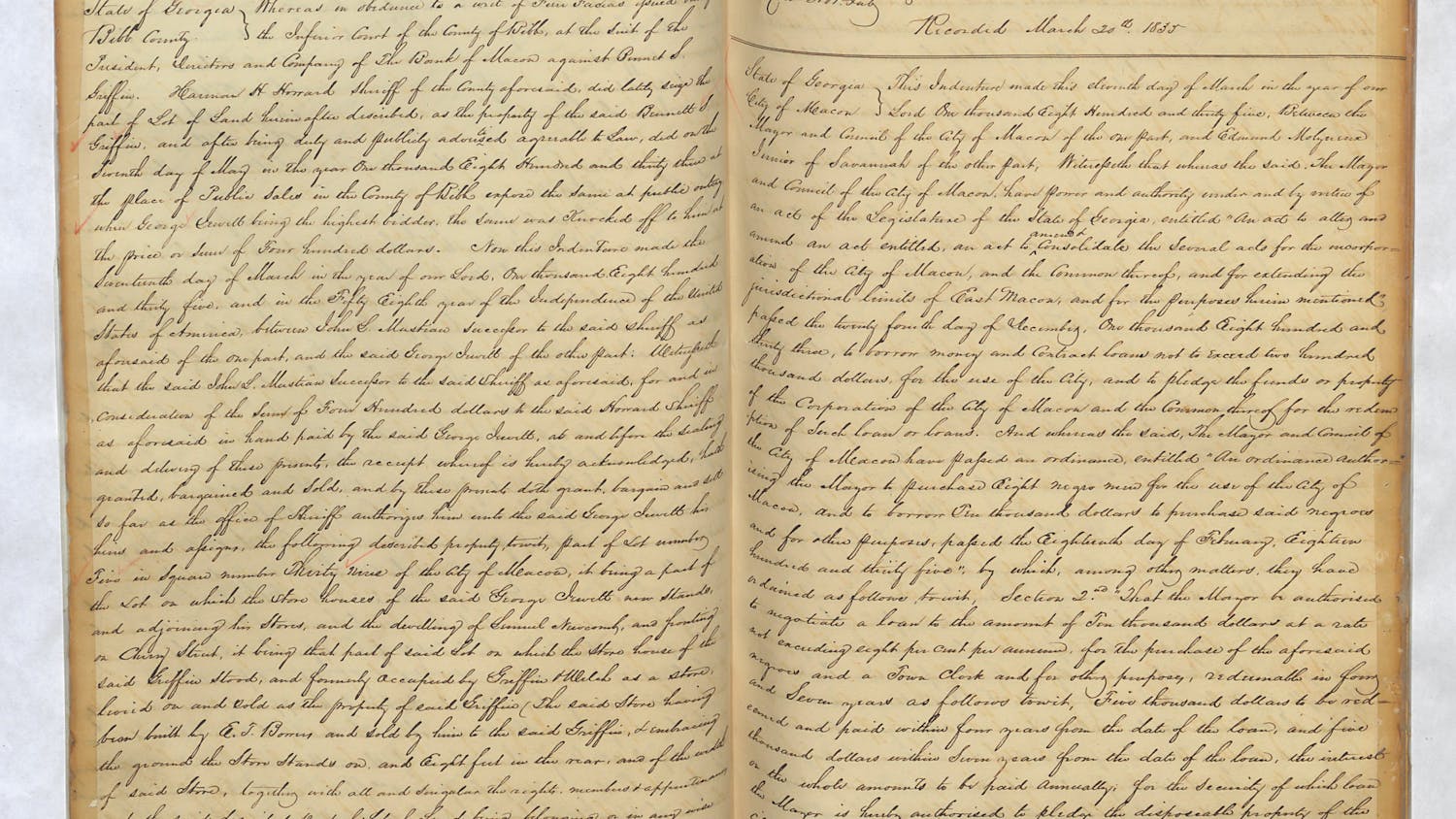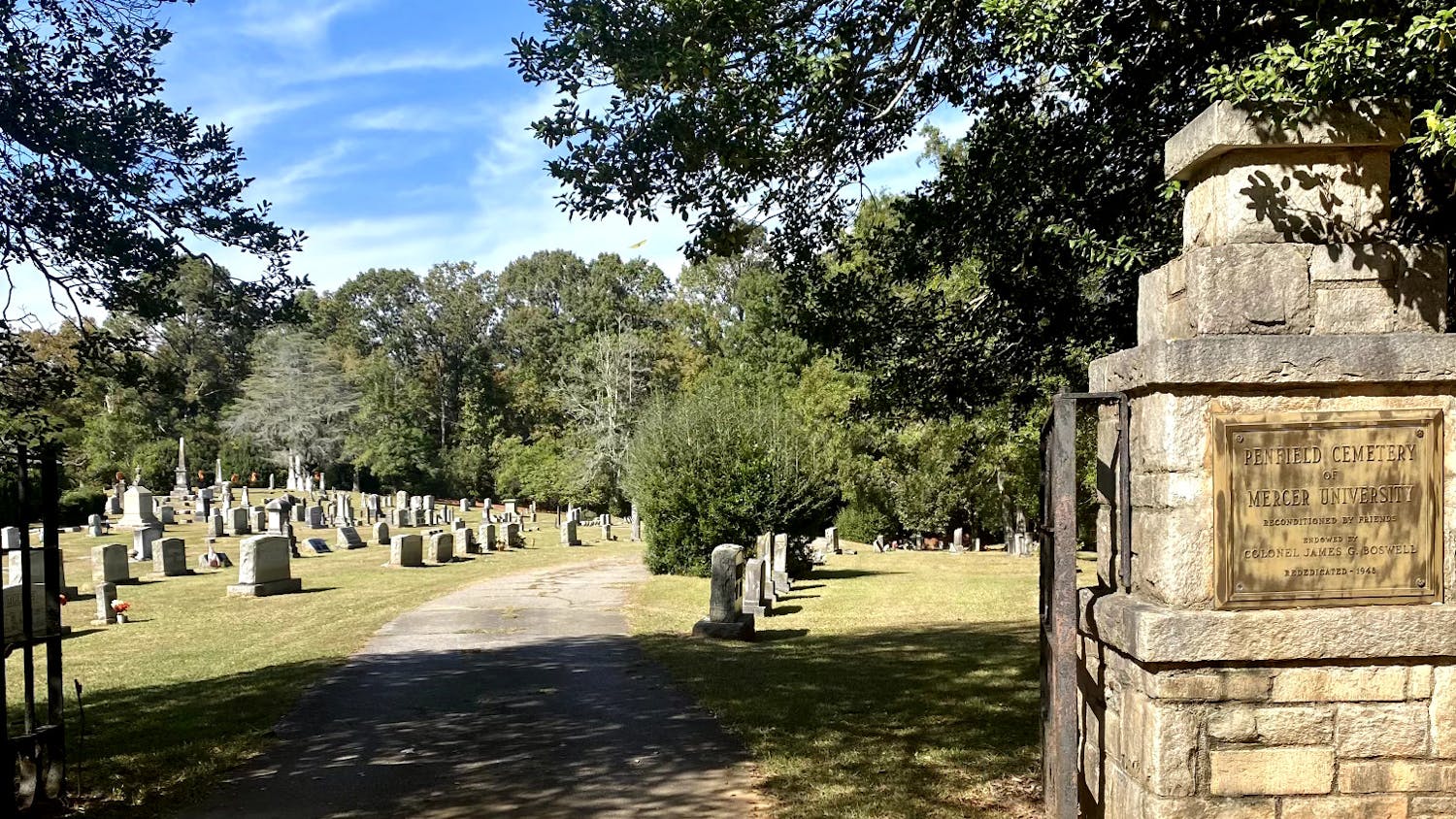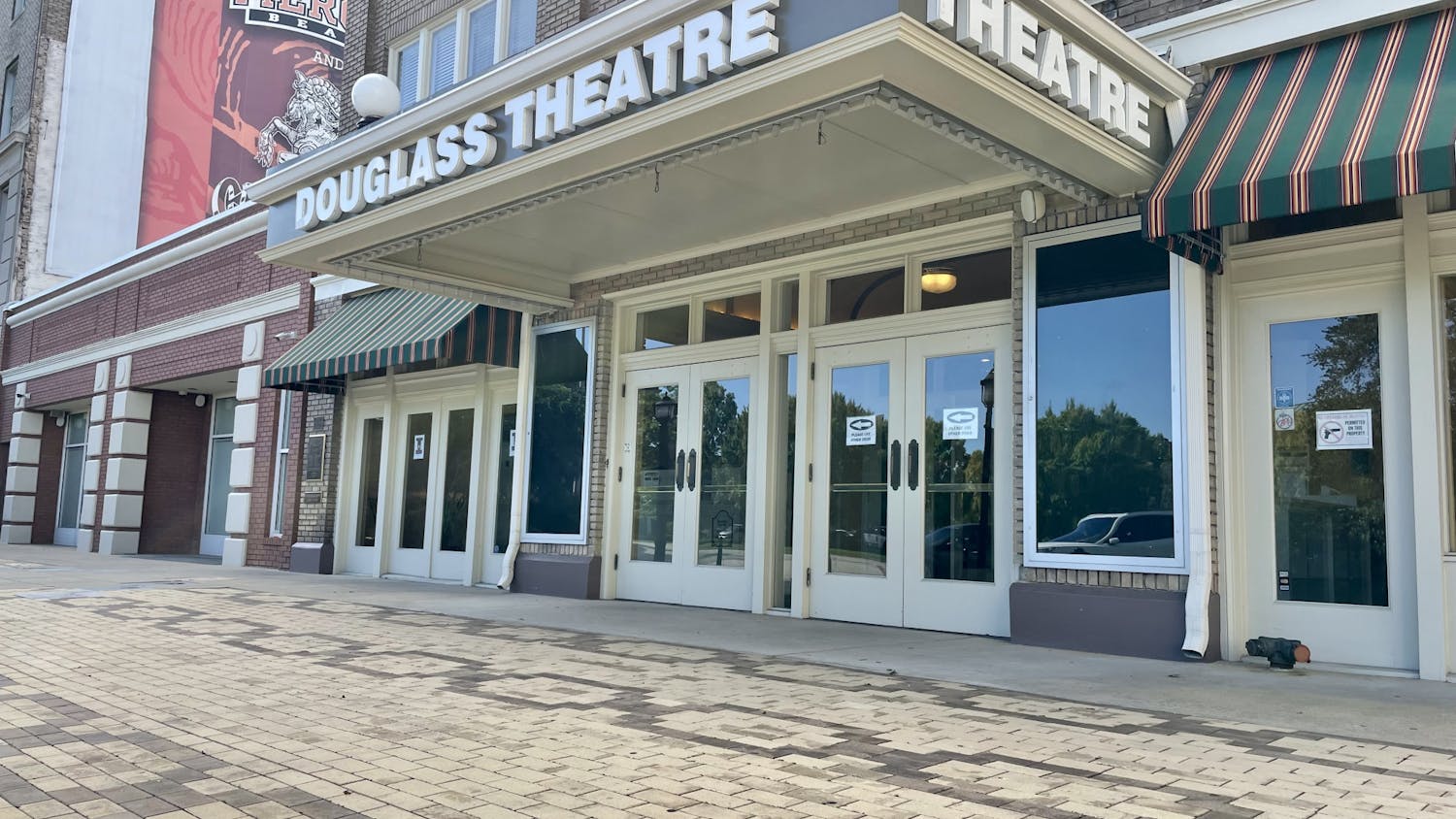After uncovering new research on the history of slavery in Macon-Bibb County, Mercer University’s history department is still attempting to fully understand slavery’s role in the origins of the university.
In the fall of 2020, Mercer joined the Universities Studying Slavery (USS) Consortium allowing Doug Thompson, director of the Spencer B. King Jr. Center for Southern Studies, and his student assistants to begin researching elements of slavery from Mercer’s past.
Other universities have also joined the USS including The University of Georgia and Wesleyan College. Wesleyan College was the first Georgia institution to join the USS consortium and continues to address its past connections with the Ku Klux Klan while being involved with the research.
Thompson oversees the Penfield Project which will explore the story of Mercer’s founding and its relationship with slavery. Thompson believes it is significant that the research continues to build on the evidence for the amount of wealth amassed from chattel slavery.
“As a historian, nothing in the work has caught me off guard,” Thompson said. “We deal with uncomfortable topics as part of our research and I think the thing that has had the biggest impression on me, however, is the scope of wealth in Penfield that the slave economies created.”
The center recognized the role of slavery during Mercer’s founding seen through the wealth and human capital amassed by Jesse Mercer after marrying his second wife Nancy Simons in 1827.
Thompson believes that this research will change how viewers think about Penfield during the post-emancipation period when much of the city’s wealth disappeared and the university struggled, forcing it to move to a different kind of economic model.
He also hopes to develop a database identifying all of the enslaved people buried at Penfield, the original site of Mercer University, from 1833. The goal of this database is to describe how slavery was responsible for much of the wealth from that time frame as well as to help descendants recognize their ancestors.
Summer Perritt, a Ph.D. student at Rice University, spent six months on her thesis into the history of slavery at Mercer while she was a master's student at the University of Edinburgh and still feels like she is a current member of the team, often receiving updates from Thompson.
“Looking into my alma mater felt like something I needed to do as I knew there was a history there that was not being talked about,” Perritt said. “When researching Mercer University's history with chattel slavery, I’ve felt both frustrated and grateful. I believe this was an incredibly important first step for the University to take as a school that purports to make a genuine difference in the lives of others.”
Perritt agrees that many universities have been hesitant to discuss their histories with slavery, but believes that universities not addressing their histories only creates a disservice towards the memories of those harmed by those consequences, especially for Black Americans today.
Other Mercerians have also supported the research efforts of the Spencer B. King Center for Southern Studies. Chester J. Fontenot, Jr., a Baptist Professor of English and the Director of Africana Studies, has helped Thompson recognize the use of enslaved African Americans during Mercer University’s early beginnings and within its economic foundation.
“Whenever I engage in research projects on slavery in the U.S., my thoughts and emotions range from anger to pride,” Fontenot said. “I get angry because slavery should have never taken place in the U.S., much less with members of my own family, and pride because I am a member of a family, a race, that has succeeded in spite of being enslaved in the past.”
Fontenot has spent many hours over the last few years working with Thompson on his research on slavery at Mercer. When the research is completed, Fontenot hopes to condense it onto a digital platform for the public to view as he has helped accomplish with the Bibb County Clerk records.
Elsewhere in Macon, Erica Woodford, the Bibb County Clerk of the Superior Court and Mercer alumni, says that this work is valuable and that everyone should know and understand the past in order to improve the future.
“I never knew we had property deeds containing records of people buying and selling humans right here in Macon,” Woodford said. “When I first took office in 2013 and discovered these hidden gems, I knew I had to preserve, promote and publish the records so that our community, and the world, could learn from these primary source records about the history of slavery in this country.”
She was shocked to learn that her alma mater participated in the institution of slavery, especially with Mercer being founded upon principles of Christianity, but also observed that Mercer was not unique in its past. Based on her research, she found that many institutions of higher learning used slave labor along with local churches and other businesses, banks, and even the City of Macon.
Woodford has supplied Thompson and the Spencer B. King research team with access to historic records to help them document accounts of slavery at Mercer.
The research team at Mercer found those records from Woodford to be crucial as they document Bibb County residents who went to Mercer such as Joseph Willet, a former Mercer professor with his own ties to slavery.
Thompson hopes that this work will help the Mercer community understand that Penfield is not simply part of the pilgrimage for students, but that the space defined the university.
Thompson is currently writing an article about Billington Sanders, Mercer’s first president, and how Sanders’ lifestyle as a plantation owner also allowed him the freedom to be a minister and will be published in Fall of 2023. The article will show how the university formed as a training space for the children of plantation owners instead of Baptist ministers and that even the Baptist ministers were part of the planter class in Georgia.
The Mercer administration supports the Spencer B. King Center for Southern Studies’ efforts to join the Universities Studying Slavery and is interested in the outcome of their research, especially in regard to the Penfield cemeteries.





